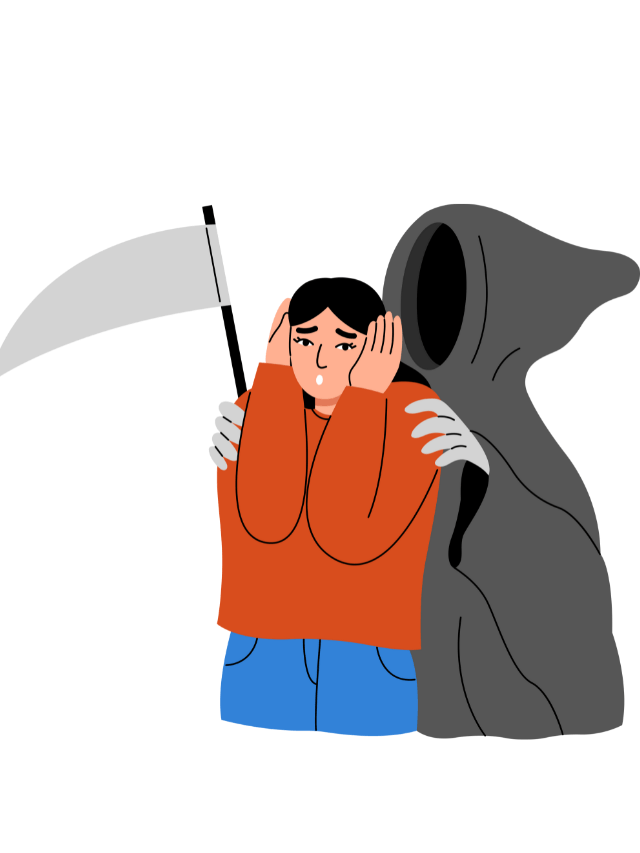Fear is an inbuilt survival mechanism. Like other emotions, the intensity of fear can vary from mild to medium or intense.
Fear response or “fight-or-flight” mechanism is activated in our bodies whenever we sense danger or if we’re confronted with something that seems potentially dangerous.
However, many situations are simply perceived as being dangerous but, in reality, may not be dangerous. In other words, these are symbolic stressors that can activate a fear response, which can sometimes be unnecessary.
For example, a person may see a dog at a distance and get scared, starts sweating and trembling. Now this reaction is not needed since the dog is not causing any harm currently. (This reaction may be necessary only if the dog is trying to bite you).
However, sometimes fear can be useful as well.
E.g. A person who can’t swim and feels scared to dive in a pool ensures safety and takes precautions. However, fears become a reason for concern when they are persistent and disrupt our daily functioning.
Reasons behind Fear
Most of the time, our fears are due to certain associations –
- Past experiences: A girl may panic the moment it starts raining because she was held up at a place for two days due to heavy rains.
- Learning: A child may observe his elder brother getting scared of lizards and reacting in a particular way. The child may pick it up, thinking this must be dangerous and eventually learn to feel scared.
What is the difference between fears and phobias?
In most cases, the fears may appear irrational to an outsider, but the person experiencing the fear generally seems to have a rationale behind holding on to the fear.
This is where from a therapeutic perspective, phobia becomes different from fears.
For most phobic responses, even people who have the phobia understand that the phobia is irrational. People who have phobias may even know that what they feel has no specific reason, but they still feel petrified!
Fear is when an individual sees a dog and gets nervous. One is said to have a phobia when a person might not want to leave the house because he hears a dog barking far off.
Phobias are very intense fear that the person knows is irrational.
So what happens in the mind when we feel fear or phobia?
We are aware that stimulus creates a response.
What we need to know is that there is an internal world between stimulus and response. This internal world is unique to each of us and determines the response we give to the stimulus. That is why not all of us are scared of dogs, snakes, lizards, etc.
Let us take an example from a case: A woman jumped and screamed every time she saw a cockroach. She knew the cockroach couldn’t harm her, but she reacted that way automatically and felt very scared.
During a therapy session (based on the integration of Hypnotherapy & NLP), she realised that in her mind, the cockroach is enlarged and becomes as tall as a five-storey building that is coming closer to eat her!
Her response was appropriate for her imagination. However, this story in the internal world din’t serve her any purpose. Instead, it gave her an undesired response.
Therapists Niche
Now, if the mind can create creepy stories in the internal world, it can also convert those into funny or pleasant ones. Since the fear/phobia response in most cases is a result of the internal story, as the story changes, so do the response.
And that is exactly how the therapy can help, i.e. by helping the client change this internal story in a way which it benefits the client.
This understanding is the basis of the NLP Fast Phobia Cure process and also the incredibly powerful yet simple If-Then statements.
If you are a coach or a trainer who would like to learn and use powerful techniques like the if-then statement with your clients or participants, you would love the Cognitive Hypnotic Coaching™ Program.
If you are a psychologist who would like to work with clients that have intense fears or phobias, or other persistent problems where your existing tools were falling short or taking too much time, you would love techniques that you will master during the Cognitive Hypnotic Psychotherapy™ Program.



